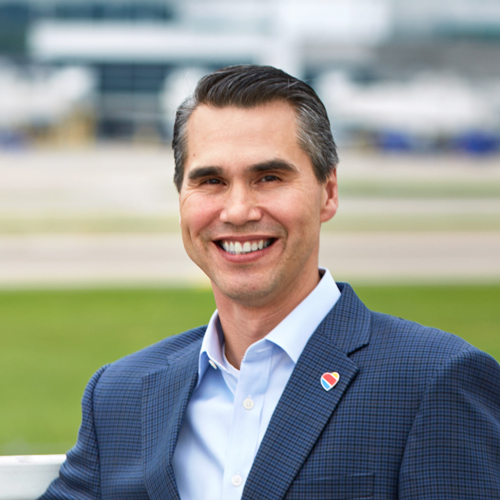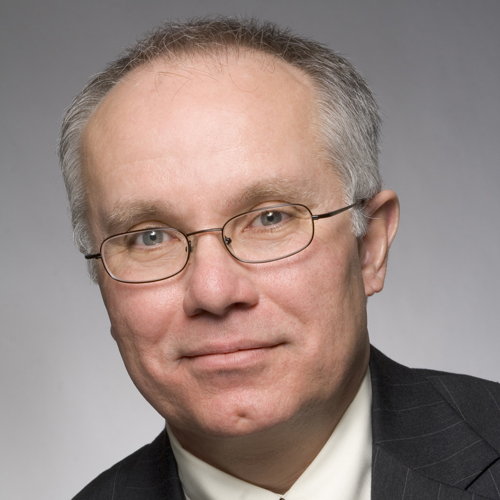Even as a child, Sandra Delgado had a curiosity about how a person’s health could affect their overall happiness and potential for achievement. Her interest in medicine sprang from a desire to help people be their best.
Raising a Hispanic family in Texas, Delgado’s father made sure that his daughter knew that a woman with an education would have better options to care for herself and her family. His advice really stuck with her and Delgado focused on prioritizing education above all. She earned a degree in child development and family relationships from the University of Texas–Austin, followed by a medical degree from Texas A&M College of Medicine.
During her residency in family medicine, she got a master’s degree in public health and completed a fellowship in preventative medicine in San Antonio that launched her career in population health.
Humana TRICARE By the Numbers
TRICARE is a major part of the Military Health System with:
9.4M
beneficiaries
55
military hospitals
373
military medical clinics
245
dental facilities
In 2015, TRICARE saw:
20.5M
outpatient visits
1m
inpatient visits
119,000
babies born in the
military health system
128m
prescriptions filled
“In private practice, you have limited impact. You see fifteen or twenty patients a day—many of whom have preventable conditions or social ills,” she says. “I was more interested in improving the health of an entire population.”
Today, Delgado serves as the chief medical officer for Humana’s TRICARE division, which is administered by the US Department of Defense and covers active and retired military and their dependents. But her career began in the public sector.
During Delgado’s ten years working in Texas public health at the local, regional, and state levels, she handled everything from immunization services to communicable disease control. She treated Hurricane Katrina evacuees in San Antonio, gaining experience as a first responder from a public health perspective. She pulled in various health systems and health providers to assist the evacuees.
“I enjoyed being able to help people with their immediate health needs, while at the same time organizing an entire system to come to their aid,” she says. Delgado would go on to lead disaster relief for the state of Texas which, she notes, “gets more natural disasters than any other state. Floods, tornadoes, hurricanes, fires—you name it, and it happens in Texas.”
Delgado then made an important transition to Humana and the private sector in 2012. At first, Delgado found it challenging to learn the culture of the private sector after spending so much time in the public sector. But, she says, “I had strong leaders who took me under their wing and provided me with vital learning opportunities.”
Most rewarding for her has been the ability to focus on preventive health for a company that understands and has the resources to address an entire population. “Humana touches 500,000 lives in San Antonio on a daily basis—out of a population of a little more than a million,” she says. “We are profoundly interested in the overall health of the community.”
As chief medical officer of TRICARE, Delgado oversees not only 350 associates, but also the population health services for more than 3 million TRICARE beneficiaries in ten states in the southeastern United States. She is responsible for referrals—matching the beneficiary with the best provider in the Humana network—as well as case management for those who have recently experienced an acute health episode, such as surgery. Delgado has also taken on responsibility for disease management for those with chronic conditions, credentialing, and quality management.
“Mine is a unique position,” Delgado explains. “The focus of the military health system is to maintain a top level of health and readiness to be deployed.”
TRICARE’s priority is not only about maintaining a healthy military, but it’s also vitally important that a soldier’s family’s health be resilient enough to support the deployment of a loved one. Delgado actively takes on the particular challenges of the military population. Because of deployments, the military is a uniquely mobile population. There is a need for services to be transferable across large geographies, and a major challenge is to maintain care without interruption.
In addition to physical health, the mental healthcare needs of this population are distinct. “We have to know how to manage when someone is deployed and when they come back from deployment,” Delgado explains. “Even if they don’t have PTSD, they have to adjust to getting back to normal life. And their physical health may be put on the back burner.”
What has surprised Delgado the most during her medical career is the change in the way health is measured. In the past, it was measured by lab results, X-rays, and EKGs. “But now, thanks to technology, we don’t necessarily categorize all people with a condition—like diabetes, for example—as the same based on their lab results,” she says.
Delgado describes a tool borrowed from the Centers for Disease Control and Prevention called the Healthy Days Measure as something that has been particularly useful. “With Healthy Days, we ask people, ‘How many days out of the last thirty have you not felt healthy enough to do what you have wanted?’ How a person has felt correlates pretty closely with their lab results, X-rays, and other technical factors,” she says. “We’re starting to focus on what matters to patients.”
What initially attracted Delgado to Humana was that the company has transitioned from a traditional health insurance company to a health and well-being company. “Over the last ten or twenty years, there’s been a perception in the community that health insurance is a barrier to people achieving their best health,” she explains. “Humana wants to be a facilitator of health. Our enterprise goal is to improve the health of every community we serve by 20 percent by 2020.”
“Our enterprise goal is to improve the health of every community we serve by 20 percent by 2020.”
Humana is also committed to the health of its employees. “We want our associates to be as healthy as possible so our customers will find it easy to trust us with their health.”
A fairly new approach in medicine today is the use of predictive analytics. Technology is used to personalize the healthcare that patients receive, the kind of messages and reminders they get, and the type of physician they are paired with. Predictive modeling can be used in a variety of health-related situations.
“It can be used to tell which of two heart attack patients is more likely to be readmitted and which elderly patient is more likely to get a urinary tract infection or fall in the home—which can lead to hospitalization,” Delgado notes. “We know how to intervene before that happens and do everything possible to prevent hospitalization.”
Delgado loves working with the military, especially through Humana’s perspective. “Focusing on population health motivates me. I feel like I’m in the right place at the right time with the right skill set,” she says. “I remember lamenting to my mother how all of my friends were starting their careers right after college, but I would be so old when I finished medical school. She said, ‘You might as well get old doing something you love.’ Looking back, I totally agree with her.”
 Diagnosis with Dr. Hernandez Suarez
Diagnosis with Dr. Hernandez Suarez
“Dr. Sandra Delgado is actually one of the first people I met when I joined Humana. I consider her more than just a colleague—she is a friend. We formed an immediate kinship because we both started in the public sector and had similar experiences moving to the private sector.
Now, Delgado’s work is mission-driven. The military personnel and their families have unique and unpredictable needs. Their health circumstances are what might be considered disruptive—even with multiple deployments, military staff are still in need of continuous care.
Delgado must approach that type of environment holistically and with an integrated physical and behavioral health strategy. She must be more than just patient-centric, she has to be family-centric.
By applying the principles of population health to Humana’s powerful data base, Delgado is optimally equipped to commit to quality healthcare for this special community. Her joy in service is authentic and infectious, and our military families are healthier because of her leadership.”
—Dr. Yogi Hernandez Suarez

